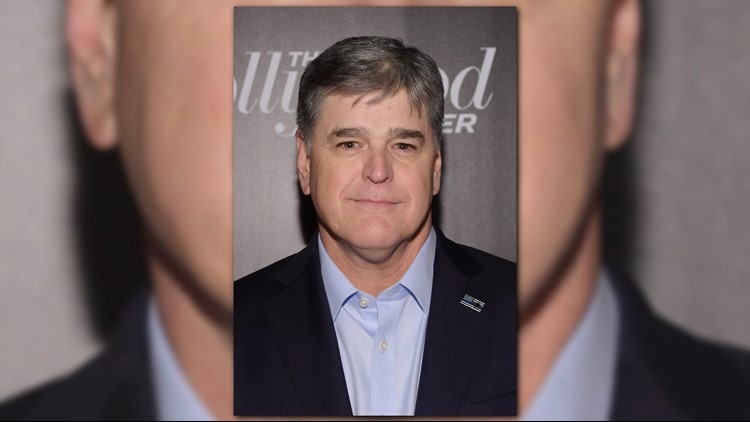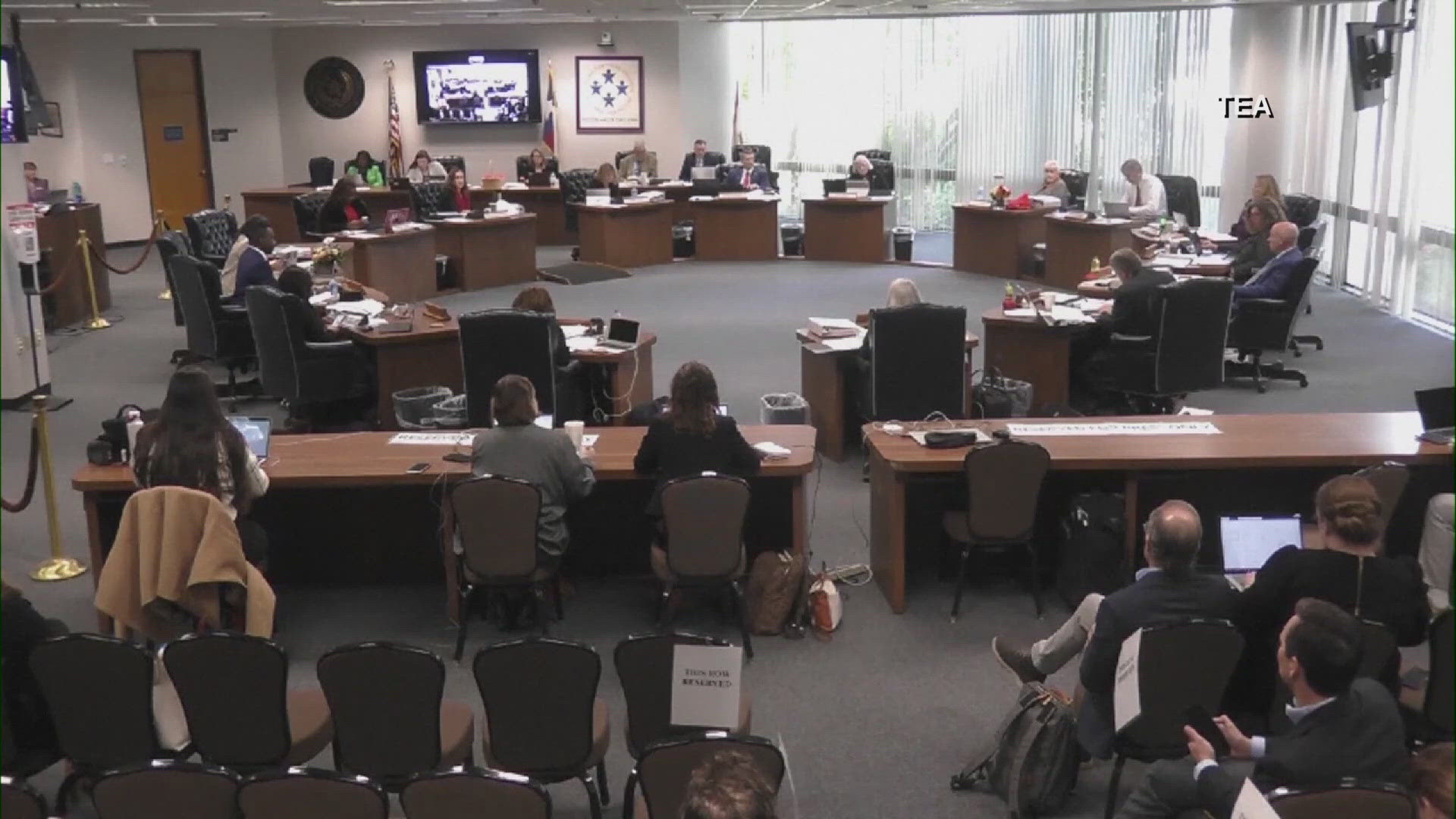NEW YORK — A federal judge dealt a legal setback to President Trump on Monday, denying his bid to review records seized in an FBI search of his personal attorney's home and office before federal prosecutors review them.
The decision came in a court hearing where it was revealed that the client list of presidential lawyer Michael Cohen, who represented Trump in offering hush money to a porn star, also includes one of the president's biggest supporters: Fox News host Sean Hannity.
U.S. District Judge Kimba Wood issued the ruling after lawyers for the Department of Justice, Cohen, the Trump Organization, and Trump himself squared off in a high-stakes clash over attorney-client privilege. The attorneys clashed over who should be able to see records seized last week in an FBI raid on Cohen's home, hotel room, and offices.
On hand in Manhattan federal court for the arguments was a spectator much in the news: Stormy Daniels, the pornographic video actress who claims to have had a consensual affair with Trump. She is trying to void the terms of a $130,000 hush-money settlement she reached with Cohen just before the 2016 presidential election.
The Justice Department wants a group of its own attorneys known as a "taint team" — those not conducting a criminal investigation of Cohen — to examine the records and decide which ones can't be used because they involve attorney-client privilege. Attorneys for Cohen suggested appointing an impartial special master to decide. And Trump himself wants to review the records with his lawyers and make his own decision.
"He is objecting that anyone other than himself" be able to make that determination, Trump attorney Joanna Hendon told the court.
Wood denied Hendon's application for a temporary restraining order that would block federal investigators from examining the seized material for their criminal investigation. Instead, she instructed prosecutors to assemble and index the seized records and give copies to all parties in the case.
The judge asked the opposing attorneys to submit a joint proposal with four names for a potential special master, whom the judge said "could have some role" in sorting through the seized documents and determining what was privileged.
Wood also authorized prosecutors to conduct electronic reviews of the seized material to determine such things as how often certain names, businesses and events appear in the records. Denying an objection by Hendon, the judge ruled federal investigators could obtain the statistical data without examining the underlying content.
Cohen has become the central figure in a growing presidential sex scandal, accused of using cash payments and non-disclosure agreements in an attempt to silence Trump accusers such Daniels and former Playboy model Karen McDougal.
His attorneys filed a letter with the court Monday that provided general information about Cohen's legal work but pointedly withheld the name of one of his three law clients. They argued that the client's identity should remain sealed to preserve his privacy and avoid subjecting him to embarrassment.
However, Wood ordered Cohen's lawyers to reveal the unknown third client, saying his identity is not subject to attorney-client privilege. "I understand he doesn’t want his name out there. That's not enough," she said.
After some discussion about whether the disclosure would be in writing or in open court, Cohen attorney Stephen Ryan announced the name to audible murmurs in the packed courtroom: "The client's name is Sean Hannity."
On his national radio show later, Hannity acknowledged he had sought advice from Cohen but said he never engaged him as an attorney. Cohen never billed him and never represented him in any matter involving a third party, Hannity said.
"Everybody's going insane here," Hannity said between radio segments attacking former FBI director James Comey. "I've known Michael a long, long time. And let me be very clear to the media: Michael has never represented me in any matter. I've never been a client in the traditional sense."
Hannity said his discussions with Cohen "dealt almost exclusively about real estate."
"I have occasionally had brief conversations with him about legal questions about which I wanted his input and perspective, and I assumed that those conversations were confidential," he said.
As one of Trump's most vocal supporters — and one who reportedly speaks to the president frequently — Hannity attacked the FBI for the raid on Cohen's offices last week without disclosing details of his relationship with Cohen.
A third Cohen client is Elliott Broidy, a prominent GOP fundraiser who resigned from the Republican National Committee after using Cohen to arrange a $1.6 million payment to another Playboy model he reportedly impregnated.
The Cohen raid, conducted by FBI agents with a search warrant a week ago, sought evidence of those payments, which could violate laws on bank fraud and campaign contributions. Trump himself has denied knowing anything about Cohen's efforts to pay off his accusers, and has also denied the affairs.
On Twitter Sunday, Trump decried the breach of his communications with Cohen. "Attorney Client privilege is now a thing of the past," he said. "All lawyers are deflated and concerned!"
Trump's personal lawyers argued Sunday that the Justice Department can't fairly evaluate whether Cohen's records are protected by attorney-client privilege.
Hendon said in court papers that prosecutors have already made up their minds that attorney-client privilege doesn't apply — "a bias that virtually guarantees that there will not be a fair privilege review of the seized materials."
She argued that if investigators wanted to see Cohen's work for Trump, they should have issued a subpoena.
The Justice Department argued that Cohen and Trump haven't provided evidence that Trump sought legal advice from Cohen, and that Cohen acted more as a "fixer" than a lawyer.
"Under the President’s theory, every person who has communicated with a lawyer would be given the power to turn every search warrant into a subpoena and to demand the return of lawfully-seized evidence in order to undertake their own review of the evidence. Such a rule is unworkable and ripe for abuse," wrote Robert Khuzami, deputy U.S. Attorney for the Southern District of New York.
Outside the courthouse, Daniels' lawyer claimed vindication in his client's attempts to shed light on Cohen's tactics in protecting Trump over the years.
"He is radioactive," said Michael Avenatti, who represents the porn actress whose real name is Stephanie Clifford. "The president trusted Mr. Cohen as his fixer for years. He trusted him with his innermost secrets, and I think the chickens are coming home to roost."
Gregory Korte reported from Washington.



